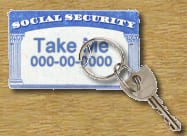 I have been double checking my personal information and making sure that I have opted out with the companies I am dealing with That got me thinking about what happens to my information when a company closes.
I have been double checking my personal information and making sure that I have opted out with the companies I am dealing with That got me thinking about what happens to my information when a company closes.
So I started to do some research and don’t seem to find any answers I wanted When a company is open and they have your personal non-public information on file (name, address, account number, checking account number etc) most companies are required to comply with the Gramm Leach Bliley Act to protect your personal information They are required to disclose to you what they do with your personal non-public information Then you have the right to opt out so that they don’t share your information with non-affiliated third parties.
With that said, what happens when that company closes? Not much Recently a company that had your personal non-public information on file to expedite you clearing airport security closed There don’t appear to be any requirements of what to do with all the information they have on file.
At this point, the only thing you can do is to check your credit report and accounts on a regular basis to give yourself piece of mind.



 Credit Card Shaving – it sounds like what you would say if you were cutting back on your credit cards, but that’s not what it means. This is the latest credit card scam and there is nothing you can do to prevent it. Isn’t that scary?
Credit Card Shaving – it sounds like what you would say if you were cutting back on your credit cards, but that’s not what it means. This is the latest credit card scam and there is nothing you can do to prevent it. Isn’t that scary?